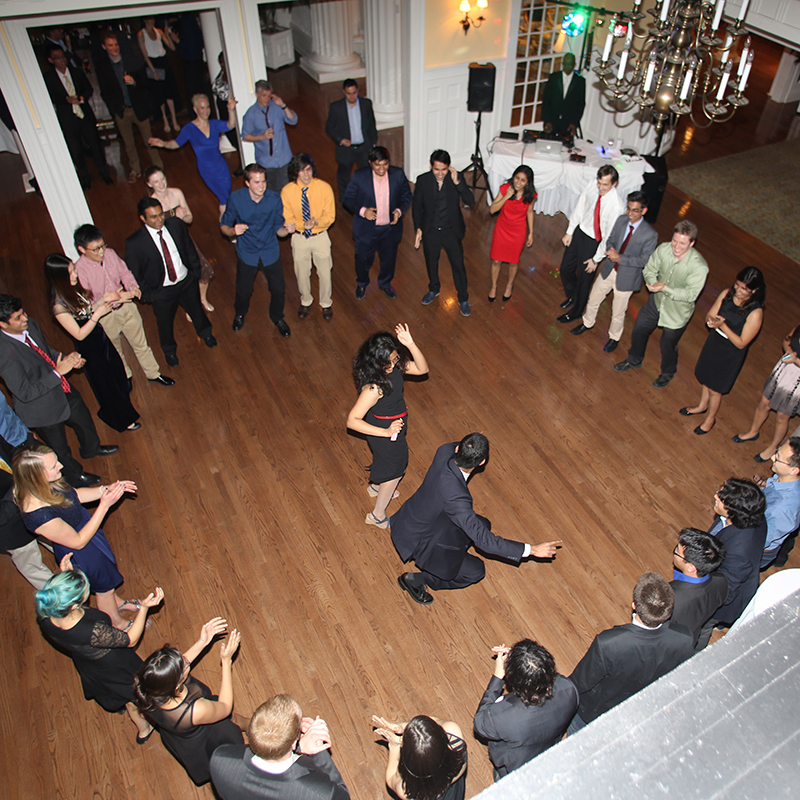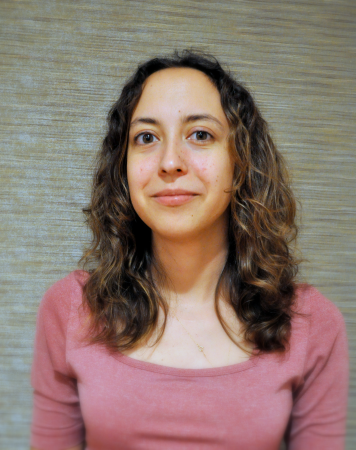Optimizing for coordination with people
https://youtu.be/AQ-w5o2oGI8 Abstract: From autonomous cars to quadrotors to mobile manipulators, robots need to co-exist and even collaborate with humans. In this talk, we will explore how our formalism for decision making needs to change to account for this interaction, and dig our heels into the subtleties of modeling human behavior -- sometimes strategic, often irrational, [...]
Analyzing Grasp Contact via Thermal Imaging
Abstract: Grasping and manipulating objects is an important human skill. Because contact between hand and object is fundamental to grasping, measuring it can lead to important insights. However, observing contact through external sensors is challenging because of occlusion and the complexity of the human hand. I will discuss the use of thermal cameras to capture [...]
Numerical Methods for Things That Move: From Quadrupeds to Starships
Abstract: Recent advances in motion planning and control have led to dramatic successes like SpaceX’s rocket landings and Boston Dynamics’ humanoid robot acrobatics. However, the underlying numerical methods used in these applications are typically decades old, not tuned for high performance on planning and control problems, and are often unable to cope with the types [...]
Carnegie Mellon University
Combining Multiple Heuristics: Studies on Neighborhood-base Heuristics and Sampling-based Heuristics
Abstract: This thesis centers on the topic of how to automatically combine multiple heuristics. For most computationally challenging problems, there exist multiple heuristics, and it is generally the case that any such heuristic exploits only a limited number of aspects among all the possible problem characteristics that we can think of, and by definition, is [...]
Fast Foveation for LIDARs, Projectors and Cameras
Abstract: Most cameras today capture images without considering scene content. In contrast, animal eyes have fast mechanical movements that control how the scene is imaged in detail by the fovea, where visual acuity is highest. This concentrates computational (i.e. neuronal) resources in places where they are most needed. The prevalence of foveation, and the wide [...]
POSTPONED – 2020 Robotics Institute Semi-formal
Due to uncertainty and developing conditions of the coronavirus (COVID-19) outbreak, the Robotics Institute at Carnegie Mellon has determined it best to postpone our planned RI Semi-formal activity on March 20, 2020. More information will be sent out once a new date has been selected. __________________POSTPONED _____________________ By invitation only: The 2020 Robotics Institute Semi-formal [...]
Carnegie Mellon University
Robotic Grasping in the Wild
Zoom Link Abstract Robotics and artificial intelligence have witnessed tremendous progress in the past decade. Yet, we are still far from building the general purpose robot butler that can autonomously operate in homes and help with manipulation tasks like household chores. Grasping is an important action primitive for manipulation and needs to generalize to unstructured [...]
Carnegie Mellon University
Resource-constrained learning and inference for visual perception
Zoom Link Abstract Real-world applications usually require computer vision algorithms to meet certain resource constraints. In this talk, I will present evaluation methods and principled solutions for both cases of training and testing. First, I will talk about a formal setting for studying training under the non-asymptotic, resource-constrained regime, i.e., budgeted training. We analyze the [...]
Carnegie Mellon University
Multi-hypothesis iSAM2 for Ambiguity-aware Passive and Active SLAM
Archived video Abstract Simultaneous localization and mapping (SLAM) is the problem of estimating the state of a moving agent with sensors on it while simultaneously reconstructing a map of its surrounding environment, which has been a popular research field due to its wide applications. As many state-of-the-art SLAM algorithms can already achieve high accuracy in [...]
Learning to See Through Occlusions and Obstructions
Virtual VASC: https://cmu.zoom.us/j/249106600 Abstract: Photography allows us to capture and share memorable moments of our lives. However, 2D images appear flat due to the lack of depth perception and may suffer from poor imaging conditions such as taking photos through reflecting or occluding elements. In this talk, I will present our recent efforts to [...]
Carnegie Mellon University
Terrain Relative Navigation for Lunar Polar Roving: Exploiting Geometry, Shadows, and Planning
Archived Zoom Video Abstract Water ice at the lunar poles could be the most valuable resource beyond planet Earth. However, that value is not foregone, and can only be determined by rovers that evaluate the distributions of abundance, concentration, and characteristics of this ice. The near-term explorations will be solar and unlikely to endure night, [...]
Carnegie Mellon University
Resource-Constrained State Estimation with Multi-Modal Sensing
Zoom Link Accurate and reliable state estimation is essential for safe mobile robot operation in real-world environments because ego-motion estimates are required by many critical autonomy functions such as control, planning, and mapping. Computing accurate state estimates depends on the physical characteristics of the environment, the selection of suitable sensors to capture that information, and [...]
Detectron2 in Object Detection Research
Virtual VASC: https://cmu.zoom.us/j/249106600 Abstract: Detectron2 is Facebook's library for object detection and segmentation. It has been used widely in FAIR's research and Facebook's products. This talk will introduce detectron2 with a focus on its use in object detection research, including the lessons we learned from building it, as well as the new research enabled [...]
Carnegie Mellon University
Aditya Dhawale – MSR Thesis Talk
Title: Hierarchical Gaussian Distributions for Real-Time SLAM ZOOM Link: (Virtual Presentation) https://cmu.zoom.us/j/7210519673 Abstract: We present Gaussian distributions as structure primitives in a hierarchical multi-fidelity framework to enable accurate real-time Simultaneous Localization and Mapping (SLAM) using uncertain depth data. Real-time mapping and localization capabilities on a mobile robot can enable deployment of robots in real-world scenarios. An autonomous system must [...]
Fairness in visual recognition
Virtual VASC Seminar: https://cmu.zoom.us/j/249106600 Abstract: Computer vision models trained on unparalleled amounts of data hold promise for making impartial, well-informed decisions in a variety of applications. However, more and more historical societal biases are making their way into these seemingly innocuous systems. Visual recognition models have exhibited bias by inappropriately correlating age, gender, sexual [...]
Carnegie Mellon University
Planning and Execution using Inaccurate Models with Provable Guarantees
Zoom Link Abstract: Models used in modern planning problems to simulate outcomes of real world action executions are becoming increasingly complex, ranging from simulators that do physics-based reasoning to precomputed analytical motion primitives. However, robots operating in the real world often face situations not modeled by these models before execution. This imperfect modeling can lead [...]
Carnegie Mellon University
Hybrid Soft Sensing in Robotic Systems
Zoom Link Abstract: The desire to operate robots in unstructured environments, side-by-side with humans, has created a demand for safe and robust sensing skins. Largely inspired by human skin, the ultimate goal of electronic skins is to measure diverse sensory information, conform to surfaces, and avoid interfering with the natural mechanics of the host or [...]
















